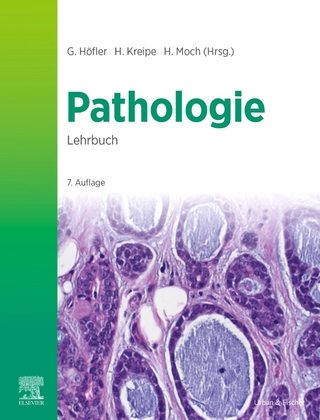
Identification of Pathogenic Fungi
Wiley-Blackwell (Verlag)
978-1-4443-3070-0 (ISBN)
Since the first edition of Identification of Pathogenic Fungi, there has been incredible progress in the diagnosis, treatment and prevention of fungal diseases: new methods of diagnosis have been introduced, and new antifungal agents have been licensed for use. However, these developments have been offset by the emergence of resistance to several classes of drugs, and an increase in infections caused by fungi with innate resistance to one or more classes.
Identification of Pathogenic Fungi, Second Edition, assists in the identification of over 100 of the most significant organisms of medical importance. Each chapter is arranged so that the descriptions for similar organisms may be found on adjacent pages. Differential diagnosis details are given for each organism on the basis of both colonial appearance and microscopic characteristics for the organisms described.
In this fully updated second edition, a new chapter on the identification of fungi in histopathological sections and smears has been added, while colour illustrations of cultures and microscopic structures have been included, and high quality, four colour digital images are incorporated throughout.
Colin K. Campbell, Health Protection Agency Mycology Reference Laboratory, Bristol, UK (retired) Elizabeth M. Johnson, Health Protection Agency Mycology Reference Laboratory, Bristol, UK David W. Warnock, National Center for Emerging and Zoonotic Infectious Diseases, Centers for Disease Control and Prevention, Atlanta, GA, USA
Preface, ix
Acknowledgements, xi
1 Introduction, 1
2 Identification of Moulds, 11
Media for Mould Identification, 14
Mounting Fluids, 16
3 Moulds with Arthrospores, 18
Neoscytalidium dimidiatum, 20
Coccidioides species, 24
Onychocola canadensis, 28
4 Moulds with Aleuriospores: I. The Dermatophytes, 31
Microsporum gypseum, 38
Microsporum canis, 40
Microsporum equinum, 42
Epidermophyton floccosum, 44
Trichophyton terrestre, 46
Trichophyton rubrum, 48
Trichophyton interdigitale, 52
Trichophyton mentagrophytes, 54
Trichophyton erinacei, 56
Trichophyton equinum, 58
Trichophyton soudanense, 60
Microsporum persicolor, 62
Trichophyton tonsurans, 64
Microsporum audouinii, 66
Trichophyton violaceum, 68
Trichophyton verrucosum, 70
Trichophyton schoenleinii, 72
Trichophyton concentricum, 74
Other Microsporum and Trichophyton species, 76
5 Moulds with Aleuriospores: II. Others, 80
Geomyces pannorum, 82
Chrysosporium keratinophilum, 84
Myceliophthora thermophila, 86
Histoplasma capsulatum, 88
Blastomyces dermatitidis, 92
Paracoccidiodes brasiliensis, 96
6 Moulds with Holoblastic Conidia, 99
Aureobasidium pullulans, 102
Sporothrix schenckii, 104
Cladophialophora bantiana, 106
Cladosporium sphaerospermum, 108
Fonsecaea pedrosoi, 110
Rhinocladiella atrovirens, 112
Rhinocladiella mackenziei, 114
Ochroconis gallopava, 116
Alternaria alternata, 118
Ulocladium chartarum, 120
Curvularia lunata, 122
Bipolaris hawaiiensis, 124
Exserohilum rostratum, 126
7 Moulds with Enteroblastic Conidia Adhering in Chains, 129
Aspergillus flavus species complex, 134
Aspergillus fumigatus species complex, 136
Aspergillus glaucus, 138
Aspergillus nidulans species complex, 140
Aspergillus versicolor species complex, 142
Aspergillus ustus species complex, 144
Aspergillus niger species complex, 146
Aspergillus terreus species complex, 148
Aspergillus candidus species complex, 150
Penicillium marneffei, 152
Scopulariopsis brevicaulis, 154
Purpureocillium lilacinum, 156
Paecilomyces variotii, 158
8 Moulds with Enteroblastic Conidia Adhering in Wet Masses, 161
Fusarium lichenicola, 166
Fusarium dimerum species complex, 168
Fusarium semitectum, 170
Fusarium proliferatum, 172
Fusarium oxysporum species complex, 174
Fusarium solani species complex, 176
Acremonium strictum, 178
Acremonium kiliense, 180
Lecythophora mutabilis, 182
Scedosporium prolificans, 184
Scedosporium apiospermum, 186
Phaeoacremonium parasiticum, 188
Pleurostomophora richardsiae, 190
Phialophora verrucosa, 192
Hortaea werneckii, 194
Exophiala spinifera, 196
Exophiala dermatitidis, 198
Exophiala jeanselmei, 200
9 Mucoraceous Moulds and Their Relatives, 203
Cunninghamella bertholletiae, 208
Lichtheimia corymbifera, 210
Rhizomucor pusillus, 212
Mucor circinelloides, 214
Rhizopus microsporus, 216
Rhizopus arrhizus, 218
Mucor hiemalis, 220
Basidiobolus ranarum, 222
Conidiobolus coronatus, 224
Pythium insidiosum, 226
Apophysomyces elegans, 228
Saksenaea vasiformis, 230
Mortierella wolfii, 232
10 Miscellaneous Moulds, 235
Aphanoascus fulvescens, 238
Monascus ruber, 240
Chaetomium species, 242
Phoma herbarum, 244
Myxotrichum deflexum, 246
Schizophyllum commune, 248
Leptosphaeria senegalensis, 250
Neotestudina rosatii, 252
Piedraia hortae, 254
Lasiodiplodia theobromae, 256
Pyrenochaeta romeroi, 258
Madurella mycetomatis, 260
11 Identification of Yeasts, 263
Media for Yeast Identification, 272
Candida albicans, 274
Candida tropicalis, 276
Candida krusei, 278
Candida lipolytica, 280
Candida kefyr, 281
Candida lusitaniae, 282
Candida parapsilosis, 284
Candida pelliculosa, 286
Candida guilliermondii, 287
Candida glabrata, 288
Cryptococcus neoformans and Cryptococcus gattii, 290
Rhodotorula glutinis, 292
Saccharomyces cerevisiae, 294
Geotrichum candidum, 296
Saprochaete capitata, 298
Trichosporon species, 300
Malassezia furfur species complex, 302
Malassezia pachydermatis, 304
12 Identification of Fungi in Sections, Smears and Body Fluids, 305
Appendix 1: Common Mycological Terms, 321
Appendix 2: Further Reading, 325
Species Index, 327
Subject Index, 333
| Erscheint lt. Verlag | 5.4.2013 |
|---|---|
| Verlagsort | Hoboken |
| Sprache | englisch |
| Maße | 179 x 252 mm |
| Gewicht | 848 g |
| Themenwelt | Studium ► 2. Studienabschnitt (Klinik) ► Pathologie |
| Naturwissenschaften ► Biologie ► Mykologie | |
| ISBN-10 | 1-4443-3070-5 / 1444330705 |
| ISBN-13 | 978-1-4443-3070-0 / 9781444330700 |
| Zustand | Neuware |
| Informationen gemäß Produktsicherheitsverordnung (GPSR) | |
| Haben Sie eine Frage zum Produkt? |
aus dem Bereich


